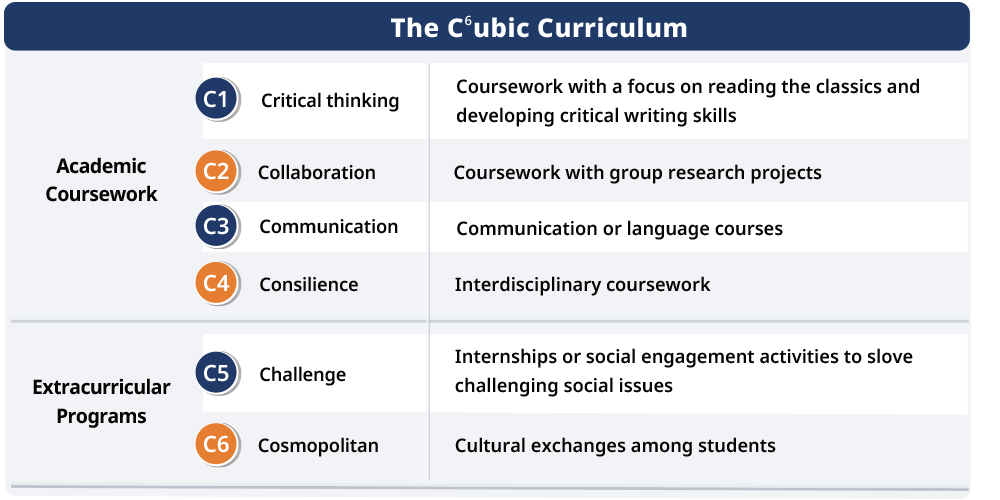
The C⁶ubic curriculum
Development of creative thinking, problem-solving, communication and writing skills all lie at the core of the liberal arts education. These skills are particularly important in the post-4th Industrial Revolution era. In order to understand and utilize technologies, such as Artificial Intelligence, Big Data Science, Robotics, Internet of Things, in ethical, creative ways, it is crucial to have liberal arts education that encompasses studies of both human and natural worlds. Interdisciplinary perspectives can bolster the benefits of liberal arts education by allowing students to think even more creatively, freely crossing and converging the traditional disciplinary boundaries.
The C⁶ubic curriculum curriculum will consist of academic coursework and extracurricular programs. This will be co-designed and co-managed among the four participating institutions. The C6ubic curriculum is to help students from China, Japan, Korea, and Singapore to cultivate the following six core skills and mindsets.

Language Plan
English will be the primary language for instruction. However, the use of English does not preclude students’ interacting in other languages. Any appropriate language will be integrated to facilitate academic, cultural exchanges. Additionally, team projects and research courses will use Chinese, Japanese, Korean, Singaporean, and English as a language of communication. Foreign language training will be incorporated into the common curriculum as part of the Communication coursework.
Monitoring & Evaluation / Feedback Plan
The participating colleges will use the agreed Unified Student Honor Codes to minimize student’s plagiarism. The participating colleges will also holistically evaluate and update the program on a regular basis. To do so, we will administer post-program participation student surveys (in summer and winter) and student course evaluations for the CAMPUS Asia online courses (in spring and fall semesters). Moreover, faculty and staff feedback will be collected via on- or off-line. Then, both student and faculty/staff feedback will be reviewed at an annual review meeting. The participating institutions will make their utmost efforts to incorporate student, faculty, and staff feedback for improving the program on a regular basis.


